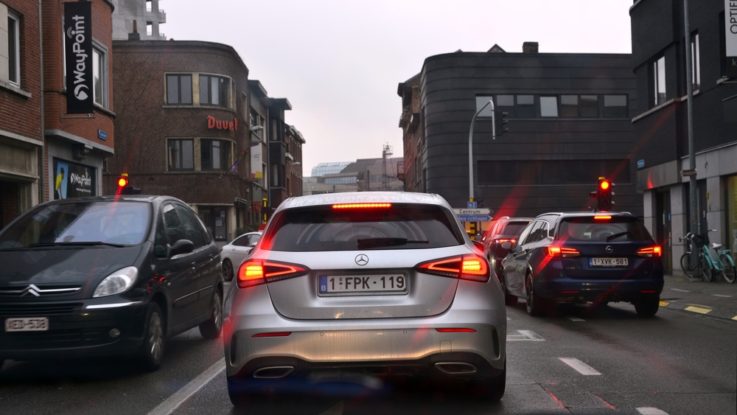
The city of Leuven in Belgium recently announced a new mobility plan for its borough of Kassel-Lo. The plan features more bike lanes, low-speed zones, revamped public transport, and measures to calm traffic.
The plan arose from Leuven’s participation in the EIT Climate-KIC Deep Demonstration of Healthy, Clean Cities – a program that aims to accelerate the transition of European cities towards carbon neutrality by the year 2030. The first phase of the process started in February of 2021 with a broad survey in which residents provided their opinions on nine propositions in the fields of mobility, greenery, and meeting spaces. Survey participants could see what their choices could mean for Kessel-Lo on an interactive map, and boards were installed on the streets to demonstrate potential projects. The mobility plan was then designed in response to proposals received from the survey, along with measures that are part of Leuven’s wider mobility strategy – which focuses on deprioritising cars, and strongly focuses on pedestrians, cycling, and public transport. The city will begin implementing the plan as early as autumn of 2022.
Traffic can be a problem in Kessel-Lo as it sees a great deal of traffic from rural areas and commuters into the city, who use a major boulevard that bisects the borough. The plan will seek to calm this traffic by creating one-way streets and banning non-resident cars from residential streets. It’s expected that these measures will reduce noise, improve air quality, and create more space for the community and pedestrians.
A revamped pass priority system will use smart traffic lights that detect the presence of pedestrians. These traffic lights will allow pedestrians to cross first, then bicycles, then public transport and, only then, passenger cars.